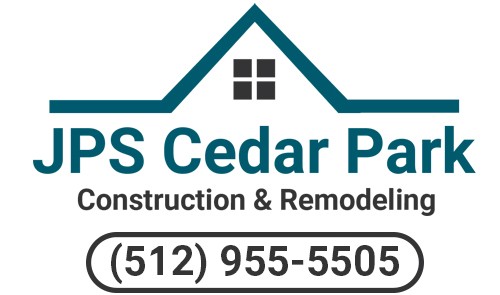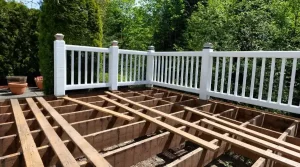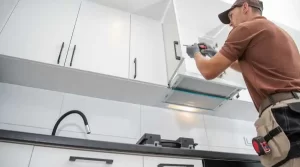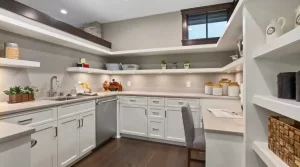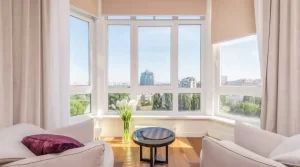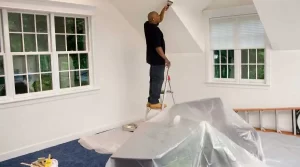How meticulously your custom builder prepares the construction budget for your home directly correlates to how accurately and precisely they will be managing your project. Your custom builder must be able to demonstrate that they have put in the necessary time, effort, and study to develop a budget that will come as close to reality as is practical. Make sure you move on to another custom builder candidate if you cannot do this.
Basics of Budgeting for a Custom Home
The first thing to realize is that custom home budgets must always be compared on a case-by-case basis. Unique dwellings require compelling and precise budgeting that takes into account a wide range of variables. Take some time to think about if your builder has done the essential planning and research to be effective.
Moreover, bear in mind that the more choices you make before submitting your offer, the more complete your budget may be. With more options, the builder will make fewer assumptions, which will lead to fewer things in the financial allocation.
Are you curious about the choices that must be made before building a custom home? Below is a link to our last blog post.
One of the following approaches could be used by a custom home builder to create a budget:
1. Use a variety of offers and historical data
This is the most precise way to calculate the cost to build a particular architectural plan. After the plans and specifications are complete, your builder should be willing to put in the time and effort required to provide you with a genuinely fair estimate of the cost of building your home. To do this, they obtain hard quotations from their network of subcontractors, meticulously evaluate them, compare the costs to those of past projects, and create an exhaustive itemized budget. Because creating a comprehensive custom home budget necessitates a major investment of time, money, and knowledge, some builders look for ways to save costs, including the next two strategies.
2. Only use historical data
For a custom home like yours, it is acceptable to use historical data to generate a preliminary estimate that will serve as a guide during the architectural design stage, but it won’t be enough to provide a comprehensive final budget.
3. Create your budget using estimates from a third-party firm.
In the event that one of your builder candidates uses this tactic, it should be avoided. This implies that they are lacking in at least one of the following: the commitment to thoroughly examine and analyze your architectural plans; the historical data necessary to confirm bid totals or develop a truly thorough budget; a sizable subcontractor network to which they can reach out for quality bids; the manpower necessary to develop a meaningful and accurate budget; and the commitment to be the best steward of your resources.
Meetings For Presenting The Budget
We strongly advise scheduling a face-to-face budget presentation meeting with each prospective custom builder to evaluate how thorough and accurate their budgets are. It is important to walk them through the budget, clarify any suppositions that were made when estimating the cost of specific budget line items, and go through the many options available to you in order to further tailor the budget. From a broader perspective, you have the opportunity to assess their expertise, attention to detail, and communication style throughout this meeting.
Throughout this meeting, you should keep the following questions in mind:
The contractor has studied and grasped your architectural plans how carefully and completely?
The more attentively they have analyzed your plans, the more certain you can be that they have recognized and budgeted for all of your home’s difficult design elements.
Did they make you aware of the underlying assumptions that formed the basis of the budget they created?
Your architectural design or specifications will surely leave out some components because bespoke homes require hundreds of small and significant features. The builder will consequently make a ton of assumptions in order to arrive at various budget amounts. They must take advantage of this opportunity to discuss them with you in order to ascertain which of those assumptions needs to be updated in order to improve the accuracy of the budget.
For the primary line items, did high-value subcontractors submit several bids?
The builder should prioritize getting numerous quotations for the foundation, roofing, plumbing, electrical, HVAC, windows, and exterior and interior doors. You can tell a lot about a company by the fact that they are willing to go through the time-consuming process of requesting and carefully evaluating many bids. For example, you can see how many excellent subcontractors they have in their network, how much they value your resources, how meticulous and thorough they are in their work, and how committed they are to providing you with exceptional service and value both now and throughout construction.
Do they thoroughly examine each offer to make sure it is complete?
Disparities in the subcontractor bids at this point could result in pricey change orders, overspent budgets, and future schedule delays.
They used low-quality subcontractors to try to win your job, was that their strategy?
A budget compiled from low-quality subcontractor bids may look good on the surface, but it won’t end up being economical in the long run. Low-quality subcontractors can provide subpar work, more mistakes during construction, escalating schedule delays, and increased warranty issues after a move-in.
Did they present you with any alternatives during the meeting to discuss their budget?
Each of the numerous factors mentioned above can be used in a variety of different ways. Good custom builders will take advantage of this opportunity to find out more about your priorities and the features you desire.
Were all permitted item amounts justified and explained?
You should be aware of how the builder determined the value of each allowance item as they are simply plug-in figures. Nevertheless, if a builder is more interested in winning your business than providing you with a budget that makes sense, this may not always be the case. Instead, their allowance numbers may not be based on credible estimations of what a particular line item would cost. During your meeting to discuss your budget, changes may be made after the builder has a better understanding of your intended level of finishing.
Did they reference historical data for comparable homes they had already built to verify the numbers in their budget?
This is good for your finances and shows how much experience they have building houses much like yours. Never allow construction projects to utilize your home as a test location.
By visiting them and asking them some crucial questions to assess the process they used to establish the budget for your custom home, you may learn not only how much it will cost to build your home but also how confident you are in your builder. This knowledge will be incredibly helpful to you as you move forward with your custom home-building endeavors.
